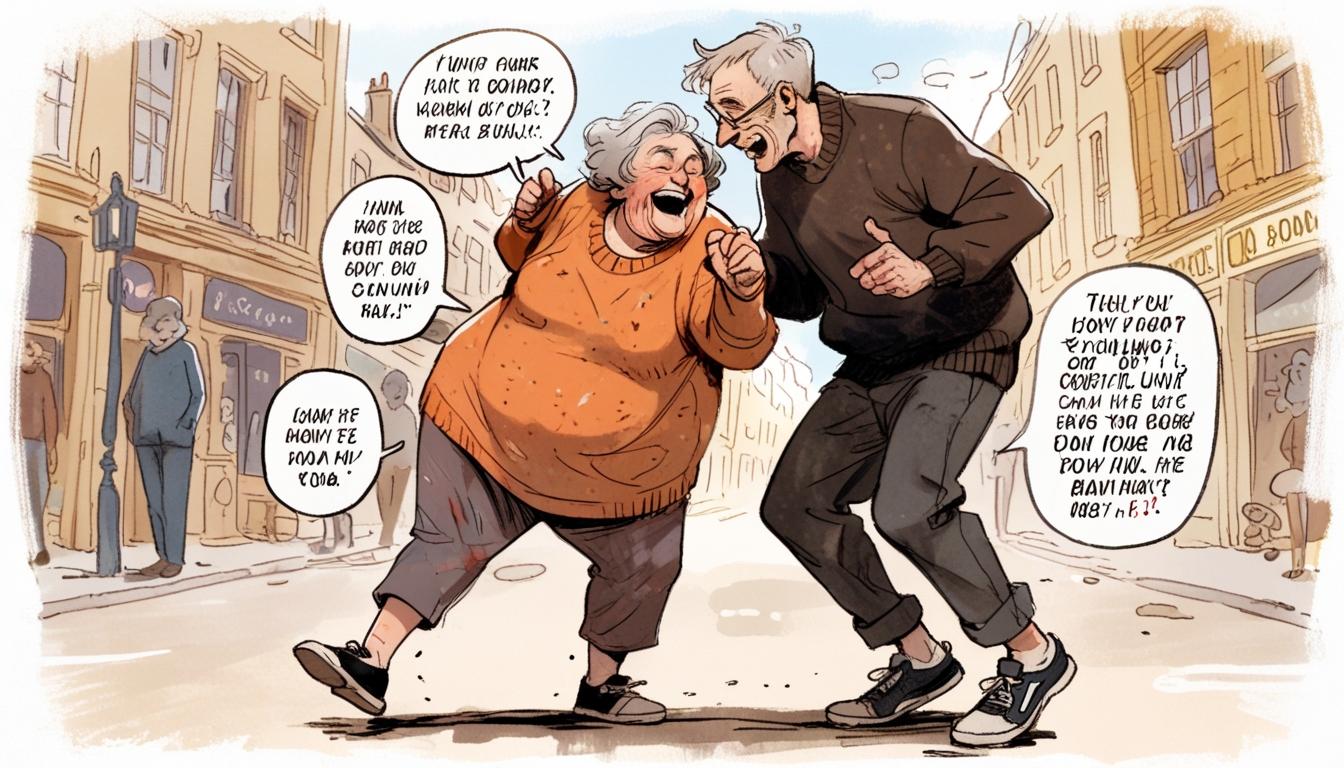In a light-hearted exploration of cultural expressions, TV star Chris Taylor and content creator Grime Gran, known off-screen as Margie, ventured into the streets of London to unveil the quirky nicknames that Brits assign to different body parts. Amidst the laughter, they discovered a rich tapestry of terms, from "footsies" for feet to "trotters," which resonated particularly with Northerners. This investigation forms part of recent research conducted by Sure Whole Body Deodorant, which unearthed some revealing statistics about British attitudes towards body odour; notably, 40% of respondents expressed feelings of shame regarding various odours beyond the underarms, leading to a pervasive sense of self-consciousness.
Among the playful nicknames revealed, "tummy" emerged as a favourite, used by 40% of those surveyed, with "food baby" gaining traction among 14%. The research highlighted a pattern: while nearly half of participants viewed these pet names primarily as sources of amusement, a significant 30% adopted them to cultivate a sense of ease, while 10% found them instrumental in easing their embarrassment. As Chris succinctly noted, “I’ve been in my fair share of sweaty situations – and it definitely helps to break the tension by using a nickname.”
The variety of terms unearthed by Taylor and Gran reflects an ongoing fascination with colloquial language in the UK. This mirthful investigation resonates with historical trends in slang, where terms for body parts often reveal deeper cultural sentiments. For example, the article discussing slang terms outlines old yet vivid expressions like "brainpan" for skull and "candle-mine" for belly, demonstrating the flexibility and creativity inherent in English vernacular. This infusion of humour into everyday language serves as a form of social commentary, where the playful use of nicknames provides a mechanism for individuals to navigate their insecurities and maintain a light-hearted atmosphere.
Additionally, the propensity for humour found in such names is mirrored in more satirical discussions surrounding body language. One satirical article examines exaggerated nicknames like "pistons" for legs and "chesticles" for the chest, critiquing the practice within certain social groups. This highlights not only the fluidity of language but also the often ridiculous lengths to which people go to create bonds through shared laughter, even at the expense of bodily dignity.
The conversation surrounding body parts extends across various regional dialects, showcasing a rich diversity in expressions. In forums dedicated to slang, users share terms such as "noggin" for head and "peepers" for eyes, emphasising that language is as much a reflection of culture as it is a tool for communication. Furthermore, educational resources shed light on the plethora of terms available, categorising expressions that range from endearing to irreverent, thus enriching the English lexicon.
As attitudes towards body image continue to evolve, such playful expressions and nicknames may provide a necessary outlet for self-acceptance. In an era marked by heightened awareness of body positivity, it seems that humour may serve as an essential ally, allowing individuals to confront their insecurities with a smile. What remains clear is that language—particularly the whimsical terms we assign to our bodies—serves not just as a means of identification but as a vital component of shared human experience, one filled with both vulnerability and humour.
Reference Map
1: Paragraphs 1, 2
2: Paragraph 3
3: Paragraph 4
4: Paragraph 5
5: Paragraph 6
6: Paragraph 7
Source: Noah Wire Services
